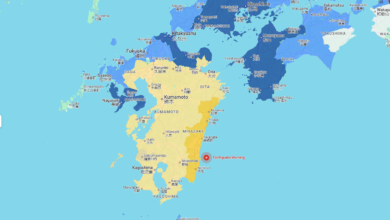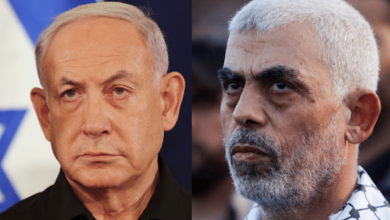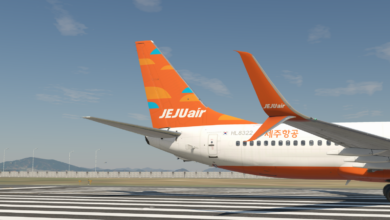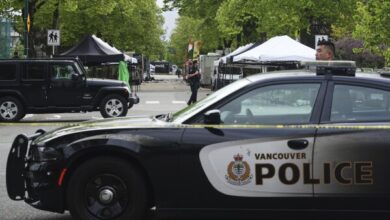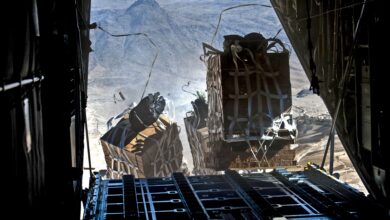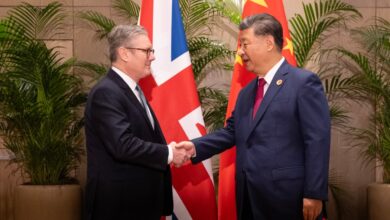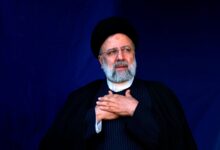Russia, Ukraine agree in Istanbul to exchange 1,000 POWs each
Russia and Ukraine have agreed to exchange 1,000 prisoners of war each following rare face-to-face talks in Istanbul — the first direct negotiations between the two countries in over three years of war, offering a faint but significant signal of potential diplomatic progress amid ongoing conflict.
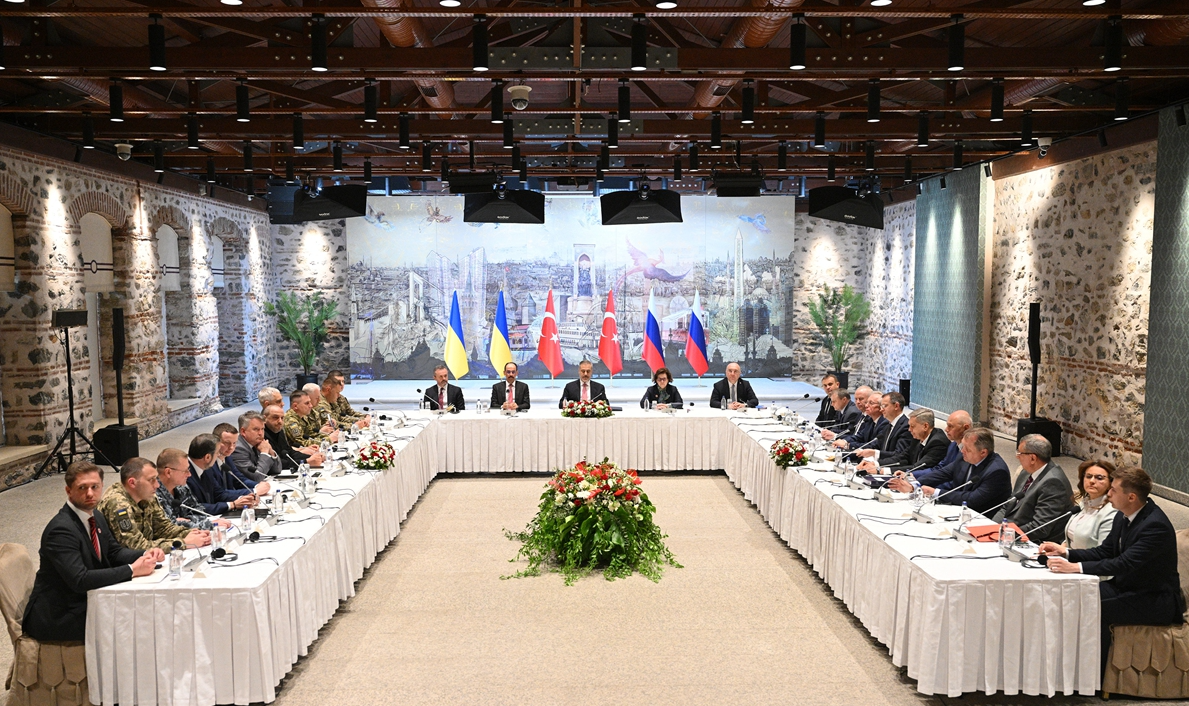
ISTANBUL, TK (WE) — In a rare face-to-face meeting held in Istanbul, delegates from Russia and Ukraine agreed to a major prisoner swap, signaling a modest but tangible outcome in an otherwise tense diplomatic encounter. The agreement will see each country release 1,000 prisoners of war, marking the first significant concession between the two nations in over three years of war.
The talks, held at a lavish Istanbul palace on Friday, lasted less than two hours. Despite low expectations, both sides managed to reach consensus on the POW exchange. The meeting was the first direct negotiation between Kyiv and Moscow since March 2022, just one month after Russian President Vladimir Putin launched the full-scale invasion of Ukraine.
Ukrainian President Volodymyr Zelenskyy immediately contacted several global leaders following the discussion. He spoke with former U.S. President Donald Trump, as well as the heads of state from France, Germany, and Poland. According to his spokesperson, Zelenskyy aimed to rally support for a new round of sanctions in case Russia refused to accept a proposed 30-day ceasefire.
A source from the Ukrainian delegation described Russia’s ceasefire conditions as unrealistic. The source, who spoke to Reuters on condition of anonymity, said Moscow demanded Ukraine withdraw from its own sovereign territories. The terms, the source said, exceeded the demands made during any prior negotiations.
Moscow, for its part, voiced satisfaction with the discussion. But while the POW exchange appeared constructive, no clear roadmap emerged for broader de-escalation.
Ukraine emphasized that any pause in hostilities should be meaningful and not used by Russia as a tactical maneuver. The Ukrainian government fears that a temporary ceasefire could enable Russia to rest its troops, mobilize reinforcements, and procure additional weapons from allies like Iran or North Korea.
British Prime Minister Keir Starmer criticized Russia’s demands and affirmed solidarity with Ukraine. He stated that the U.S., European Union, and other Western allies were closely aligned in their responses. Starmer, along with leaders from Brussels and Washington, warned that a failure by Russia to honor ceasefire principles would trigger heavier sanctions, particularly targeting Russia’s banking and energy sectors.
Trump’s influence over the proceedings remained significant, although unofficial. He has pushed both Kyiv and Moscow to agree to a temporary cessation of hostilities. During a Middle East visit, Trump said progress would require a face-to-face meeting between him and Putin. The comment diminished hopes for any substantial breakthrough in Istanbul.
Zelenskyy insisted that his country’s primary objective remains “a full, unconditional and honest ceasefire.” In his words, such an agreement would stop further bloodshed and create space for meaningful diplomacy. However, he added that if Russia failed to comply, new penalties should immediately target its oil exports and financial institutions.
Putin, who had proposed the Istanbul meeting, opted not to attend. Instead, he dispatched mid-level officials. Ukraine mirrored the move, sending negotiators of similar standing. Both delegations entered the ornate palace seated across from each other. The Russian side wore business attire, while several Ukrainian representatives arrived in military fatigues, underscoring the ongoing war effort.
Türkiye’s Foreign Minister Hakan Fidan opened the summit with a stark warning. “There are two paths ahead of us,” he said. “One leads to peace; the other leads to more destruction and death. The choice is theirs.”
Ukrainian negotiators conducted the talks in their native language, despite the widespread use of Russian in many parts of Ukraine. Their decision reflected the national pride and unity forged through nearly three years of relentless conflict.
As the talks commenced, Ukrainian news outlets reported an air alert and explosions in the eastern city of Dnipro. Hours later, Russia’s Ministry of Defense announced the capture of another village in eastern Ukraine, showcasing the war’s continued grind even amid diplomatic efforts.
Russia views these latest discussions as a continuation of the Istanbul negotiations held during the early stages of the war in 2022. At that time, Ukraine was still grappling with the shock of invasion, and Moscow’s demands included major reductions in Ukraine’s military strength. But those terms were never implemented, and Kyiv now sees any attempt to revive them as futile.
Andriy Yermak, Zelenskyy’s chief of staff, rejected any attempts to resurrect outdated proposals. He emphasized that current circumstances differ drastically from those in 2022.
Putin continues to insist on conditions that Ukraine has long deemed unacceptable. These include Kyiv’s formal abandonment of NATO ambitions, the cession of Russian-occupied territories, and the declaration of permanent neutrality. Ukrainian officials believe agreeing to those terms would amount to surrender.
Read More:
- Israel ‘normalisation’ takes backseat as Trump announces Saudi deals
- Trump Kicks Off Three-Country Mideast Visit, Skipping Israel
- US and UK Reach Historic Trade Agreement: Key Details and Reactions
Ukraine instead demands security guarantees from major global powers—chief among them, the United States. Officials in Kyiv argue that only ironclad commitments from Washington and Brussels can ensure lasting peace and sovereignty.
Meanwhile, Ukraine’s military remains on high alert. Russian troops control nearly 20% of Ukrainian territory, including parts of Luhansk, Donetsk, Zaporizhzhia, and Kherson regions. Ukraine has launched several counteroffensives to reclaim this land, but the front lines remain largely static.
Diplomats say the prisoner swap agreement could serve as a first step in rebuilding mutual trust. Still, it falls far short of a ceasefire or a political resolution. The release of 2,000 total POWs—1,000 from each side—reflects both nations’ desire to show goodwill. Yet neither side appears ready to make deeper compromises.
Putin’s reluctance to attend the Istanbul summit in person raised doubts about his commitment to peace. Analysts believe the Russian president prefers to maintain control from afar, avoiding direct political risks. His refusal to engage with Zelenskyy on neutral ground suggests that Moscow still views diplomacy as a secondary tool, subordinate to military force.
For Ukraine, the war remains an existential fight. The nation’s leadership believes that any halt in hostilities must come with security guarantees and concrete enforcement mechanisms. Without them, Ukraine fears that any ceasefire would merely delay further aggression.
Western nations continue to provide Kyiv with military and financial support. The European Commission recently approved another round of humanitarian aid. At the same time, U.S. Congress passed a new aid package to supply Ukraine with defensive weapons and critical economic support.
However, domestic politics in the U.S. and Europe may complicate future aid deliveries. Trump’s growing influence has already shifted the tone of international discourse, pressuring both Ukraine and its allies to seek diplomatic avenues more aggressively.
Still, many in Kyiv remain skeptical of Moscow’s sincerity. Zelenskyy’s inner circle suspects that Putin aims to freeze the conflict, buying time to rebuild his army. For this reason, Ukrainian officials urge continued pressure on the Kremlin.
Turkey’s role as host reflected President Recep Tayyip Erdoğan‘s ambition to position his country as a neutral mediator. Ankara has hosted multiple rounds of talks since the conflict began and played a key role in brokering past agreements, including the now-defunct Black Sea grain deal.
The current stalemate has left millions displaced and tens of thousands dead. Both countries continue to suffer devastating human and economic losses. Civilians in occupied regions face shortages of medicine, fuel, and electricity. International aid groups, including the International Committee of the Red Cross, have warned of an impending humanitarian catastrophe unless access to these areas improves.
Though the Istanbul summit produced no ceasefire, some analysts believe it opens a small window for diplomacy. The POW exchange provides a rare gesture of humanity, even amid war. Whether that goodwill can expand into broader talks remains uncertain.
Zelenskyy, speaking after the summit, reaffirmed Ukraine’s commitment to peace. “We want to stop the killing,” he said. “But peace must be just. It must be real. And it must protect our sovereignty.”
As global attention remains fixed on the conflict, all eyes now turn to potential follow-up meetings. No date has been set, and the likelihood of progress hinges on whether Putin and Zelenskyy—or Trump—are willing to meet face-to-face.
Until then, Ukraine’s cities brace for more air raids, its soldiers remain on the front lines, and its people continue enduring the hardships of war. For now, a POW exchange stands as the only sliver of light in an otherwise dark and unrelenting conflict.
